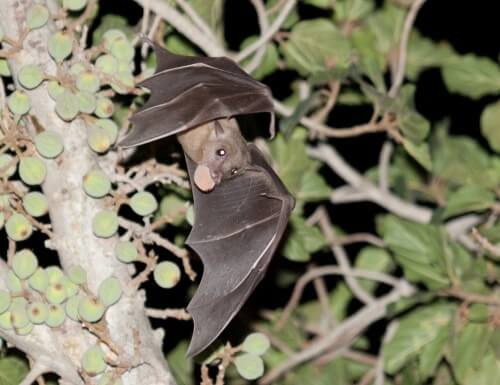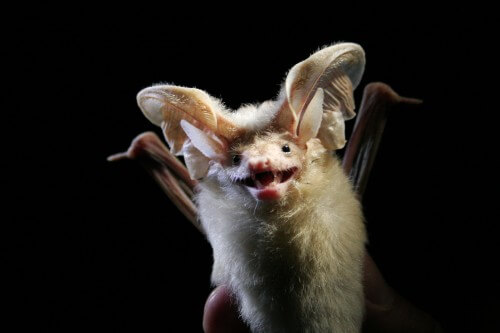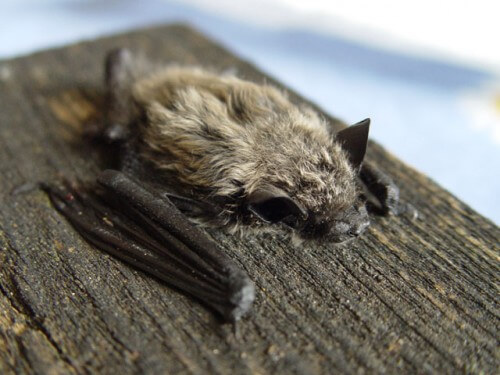On the occasion of International Bat Night, which was celebrated last week, we present the beautiful faces of Israel's bats and all the reasons to protect them and not to be afraid of them

Article: Yahla Rutterman.
Around the world, many legends have been woven about the way of life of bats. Among others we can mention the story of Dracula, which presents them as cold and cruel bloodsuckers, and the imaginary story about their tendency to hang on the hair of our heads.
The reason for the many stories about them is the fact that they are somewhat strange animals, and have unique features: they are the only flying mammals in the world, they stay in the inverted hanging position as long as they are not floating, and they are active at night and especially in dark and dark places. But contrary to the bad name they got, they actually have a great and varied ecological importance.
Last night (August 29-30) the world celebrated International Bat Night, which is dedicated to raising awareness of bats and their importance to the environment and to humans. This is a good opportunity to mention the importance of this wonderful production to the Israeli ecosystem.
Excellent tracking ability
In order to understand the ecological importance of bats, it is important to understand some basic facts about them. Worldwide there are over 1,200 different species of bats. In the whole continent of Europe there are 39 species, and in Little Israel not much less - 33 species. The reason why the number of species in Israel is significantly higher is probably the fact that Israel is on the seam line between the three continents of Europe, Asia and Africa, and therefore the existence of a wide variety of species accustomed to different climatic conditions is possible. However, the bad news is that 29 of the 33 bat species in Israel are in danger of extinction.
Out of all the bat species in Israel, only one species is a fruit bat (which feeds mainly on fruits), and the remaining 32 species are bats that feed on insects. Bats sleep during the day and are active during the night, so they can be seen flying in clumsy flight from one treetop to another. Because at night it is more difficult to rely on vision, during navigation they rely on a miraculous ability called echolocation (echo detection) - a mechanism in which the animal transmits sound into space, and based on the analysis of the nature of the echo that returns to it, it is able to understand the location, shape and identity of objects. The bats do all this while flying, and this is how they locate their food.

Scorpion predators
Fruit bats are able to swallow tens of kilometers of flight in one night. On such a night they feed on a huge amount of fruit, which can equal their body weight. Here also lies their ecological advantage: they have the ability to pollinate and spread fruit seeds over long distances. Dr. Assaf Tzoer, an ecologist at the Nature and Parks Authority, says that another contribution of fruit bats is maintaining the existence of extremely rare ecosystems in caves. "In the cave there is no sun and there is no primary production, and thus the bats that live in the caves have an important contribution to the introduction of the organic matter into the cave and the existence of the ecosystem in it."
The insect bats are credited with a no less ecological contribution, which is their ability to be used as biological exterminators against insects. Insect bats feed on a wide variety of insects, from ants, beetles and spiders to mosquitoes and scorpions. Cadet explains that "they definitely have potential for biological control. An insect bat can eat insects weighing about half of its body weight in one night, and if there is a large group of bats, this can be extremely significant." One of the unique bats in this group is the Odenan - a bat with huge ears, which lives in the desert and hunts, among other things, yellow scorpions. Miraculously, this bat eats the scorpion whole, including its venom glands, and is sometimes even stung by it while devouring without showing any signs of poisoning.

Encourage, not fear
The bat can provide an ecological and cheap solution to the problem that has been troubling us all for the past few months, which is the problem of mosquitoes. One insect bat can eat hundreds of mosquitoes an hour and a thousand mosquitoes in a single night. In the cities of the country, the white fringe flies to him, that mosquitoes are on his nightly menu, therefore he is a biological exterminator with high potential. The problem is that the number of nesting places available to him is limited. One of the possible solutions is to place nesting boxes throughout the cities in order to increase the population of these bats. In London, for example, they are trying to encourage the settlement of bats in the heart of the city. As part of the project, boxes were installed throughout the city that will provide permanent homes for the bats, and moreover - there will be a regular supply of insects to these areas, which will be a permanent source of food for the bats.
Cadet, who believes that bats are of great ecological importance, is afraid of the heavy damage we are causing them. He emphasizes that "the main damage is the destruction of habitats, but there are many other harmful factors: for example, when spraying against insects in an agricultural field causes the poisoning of the bats that eat the insects, which contain pesticides; wind turbine blades, which significantly damage them; light pollution, which harms insects and bats; And there are many other harmful factors." In order to provide protection for the bat population, he emphasizes in conclusion, the most important thing to do is to protect their habitats as much as possible.
The story was first published in the Angle - the Science and Environment News Agency
More of the topic in Hayadan:

3 תגובות
In the first picture: a sycamore tree, not a fig
Only one small problem - these nice animals, like all mammals, have the possibility of contracting rabies. So if you see a dead bat you should not touch it. You can see a lot of bats on Hamelech Gorge Street in Tel Aviv near the Sycamores - at night the street lamps (sodium) make it possible to see them in an amazing way. It is better when there are fruits for jujubes, from July to December.